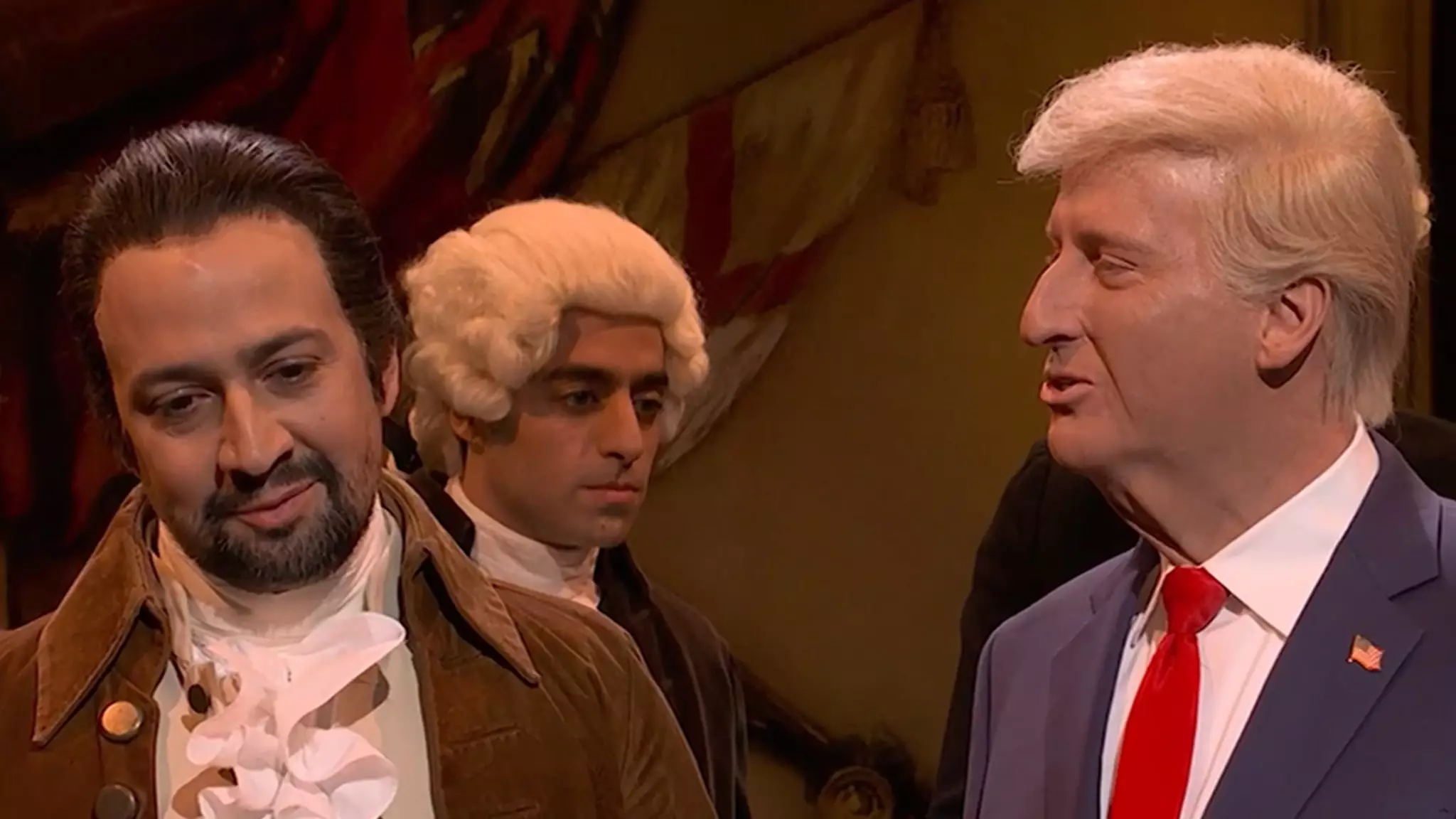In a politically charged landscape, satire has emerged as a powerful medium to critique and comment on leadership and policy shifts. Lin-Manuel Miranda, famed for his groundbreaking musical “Hamilton,” recently found himself at the heart of a satirical storm on “Saturday Night Live” (SNL). The show cleverly juxtaposed Miranda’s creative expressions with the controversial reign of former President Donald Trump, illustrating the tension between art and politics. This article dissects the humorous yet profound implications of such parodies and their reflection on contemporary societal issues.
SNL’s portrayal of Trump, characterized by comedic exaggeration through the lens of James Austin Johnson, presents a narrative that diverges sharply from Miranda’s original vision of American ideals. The musical shines a light on the foundation of democracy and the fight against tyranny, encapsulated in Miranda’s poignant line about the unlikelihood of having a king in America. The response from Trump, framed as humorous, however, alludes to a chilling notion of governance where the fundamental principles of democracy are questioned. In this instance, satire reveals how the lines between reality and absurdity blur, effectively making commentary on real political events.
Divisive Policies and Their Consequences
One particularly striking aspect of the SNL skit was its critique of emerging policies, specifically the dismantling of Diversity, Equity, and Inclusion (DEI) initiatives. In a broader context, the show highlighted Trump’s executive order, which echoes a regression in the ongoing fight for social equality. By referencing the removal of the Tuskegee Airmen from the U.S. Air Force Academy’s curriculum, the sketch spotlighted how government policies can either erase or acknowledge historical narratives that shape national identity. The comment about workplaces reverting to a demographic resembling “The Office” underscores concerns about the homogenization of the workforce, raising questions about representation and inclusivity.
Through comedy, SNL creates more than just laughter; it fosters critical discussions about power dynamics in society. The quip concerning the appointment of Pete Hegseth as Secretary of Defense cleverly underscores the anxieties surrounding the qualifications of political figures in power. The idea that specific traits, such as physical appearance, might define leadership reflects deeper societal concerns regarding meritocracy and representation in governance.
Furthermore, the allusion to Elon Musk serves as a commentary on celebrity culture’s influence on politics, underscoring the absurdity that can permeate serious discussions. The juxtaposition of serious political issues with comedic deliverance invites viewers to engage in dialogue, reminding them that laughter can coexist with activism.
As Lin-Manuel Miranda’s art previously inspired movements for change, the current political satire exemplified in SNL connects with the public in a way that shifts perceptions. In a climate that often feels divided, a humorous critique works functionally to highlight injustices, question leadership, and celebrate resilience. Ultimately, the blend of artistic expression and political commentary fosters a landscape where discourse thrives, compelling society to reflect and act. Satire, particularly in formats like SNL, plays a pivotal role in ensuring that while political climates may change, the essence of critical thinking and civic engagement remains steadfast.


Leave a Reply